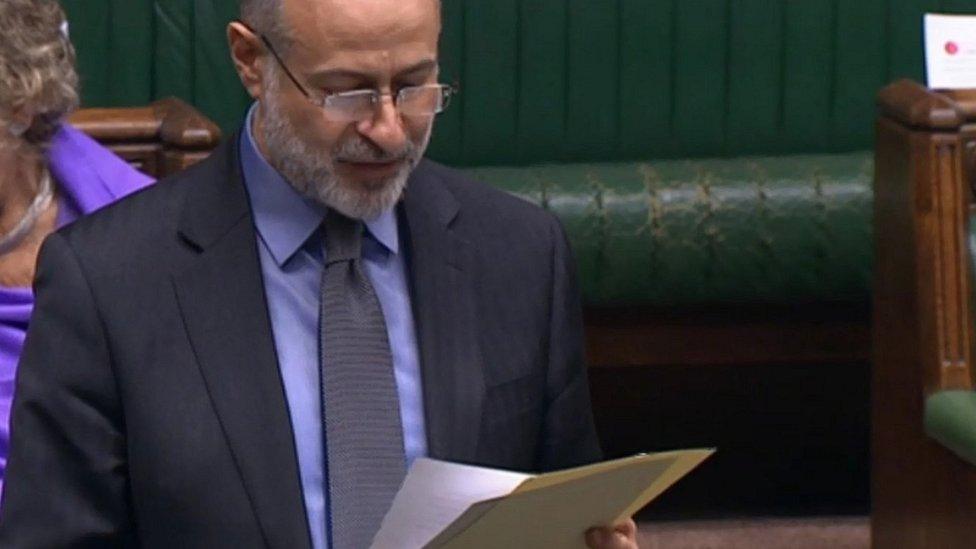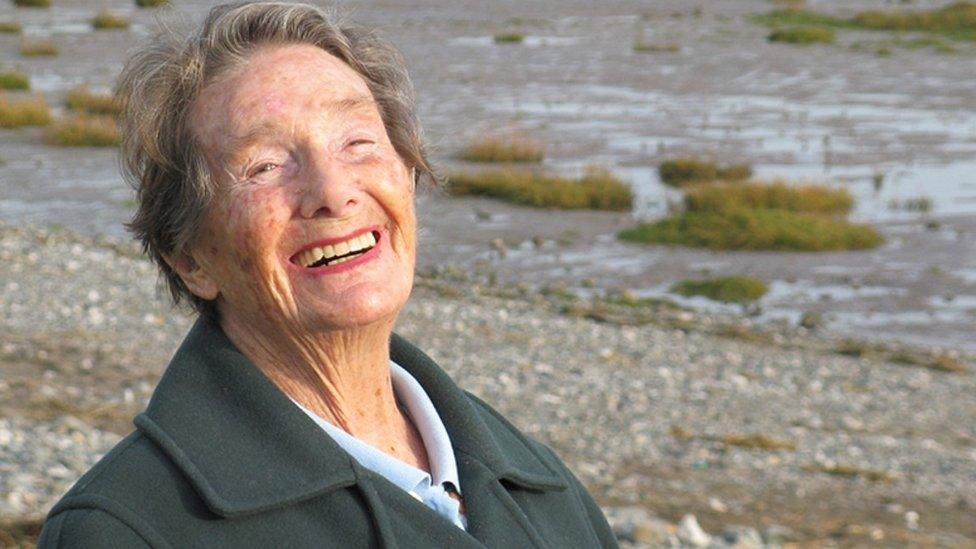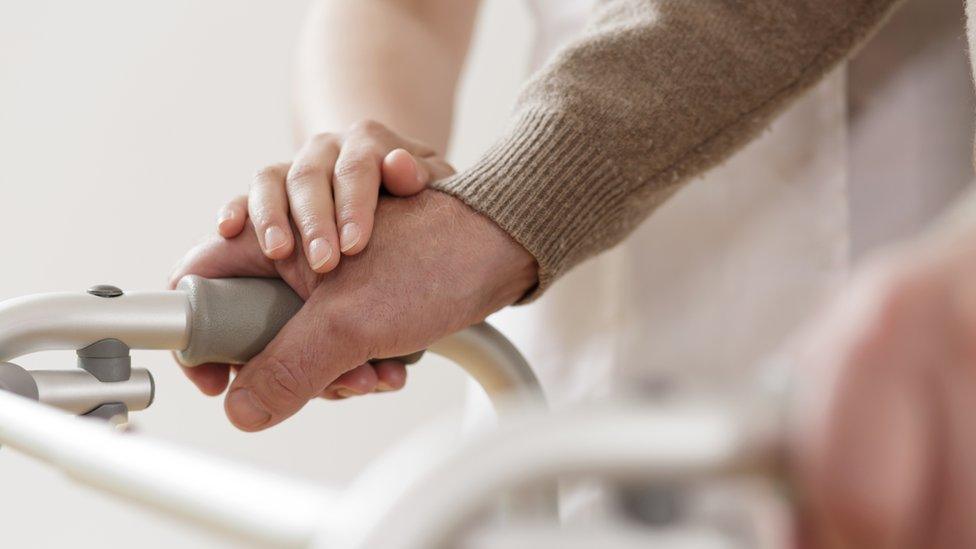MP calls for 'predatory marriage' law change
- Published

Fabian Hamilton, Labour MP for Leeds North East, presented the Marriage and Civil Partnership (Consent) Bill to the House of Commons
New measures to prevent "predatory marriages" would protect vulnerable adults and their families, an MP said.
Commonly used in Canada, the term means someone being led into a marriage without the mental capacity to consent.
Presenting a private members' bill to the House of Commons, Labour MP Fabian Hamilton shared a constituent's story to highlight the issue.
"The majority of those affected are entering second marriages and are from the older generation," he said.
Introducing the Marriage and Civil Partnership (Consent) Bill, the Leeds North East MP said laws protecting individuals from forced marriage did not cover the required ground.
Mr Hamilton mentioned Joan Blass, a 91-year-old with vascular dementia who married a man 24 years younger than her a year before her death.
Parliament heard Mrs Blass met Colman Folan in 2011, the same year she was diagnosed with dementia, and it was said he moved into her home within a month of them meeting.
Mr Hamilton said Mrs Blass died of cancer in March 2016, with her family only learning Mrs Blass had married Mr Folan after she had passed away.

Joan Blass died without her family knowing she had remarried, parliament heard
The Commons heard Mrs Blass' daughter Daphne Franks, from Gledhow in Leeds, told Mr Hamilton "no family member or friend had been told about the secret marriage ceremony".
"Joan had made a will some years before meeting Colman, but Daphne discovered to her surprise and shock that a marriage automatically revokes a previous will," Mr Hamilton said.
"Colman now had complete control over Joan's estate, in spite of the fact that Daphne previously had Power of Attorney on behalf of her mother during her lifetime."
In a statement given to BBC Radio 4 on behalf of Mr Folan in March, his relationship with Mrs Blass was described as "long, loving and caring".
It read: "I was not made aware by Mrs Franks, her family or Mrs Blass' GP of any concerns they had about her capacity or a diagnosis of dementia.
"The registrars who performed the marriage ceremony believed Mrs Blass had capacity to enter into marriage."
It added: "Mrs Blass wanted to marry me and I believed at the time, and still do, that she has capacity to make that decision for herself."

Proposed changes
Marriage should no longer revoke a previous will in every case
Better training for registrars to ensure robust procedures for safeguarding apparently vulnerable individuals are put in place
The 'capacity to marry' should be established via a simple questionnaire, with an option of a medical assessment also available
Notices of intention of a marriage should be published on the internet

Concluding the Ten Minute Rule Bill, Mr Hamilton said: "It is not good enough for a registrar simply to say that because one of the participants in a marriage ceremony was smiling at the time, that meant consent was happily given.
"Much of the anecdotal evidence suggests that Joan had no idea she had ever been married to Folan and that there was clear evidence her mental capacity was severely reduced in the last years of her life."
He believed the case "has profound implications for many hundreds of other families who may find themselves in a similar situation across the country".
The BBC has attempted to contact Mr Folan again in light of the MP's comments in the House of Commons.
The bill will have a second reading in Parliament on 25 January.
- Published17 May 2018
